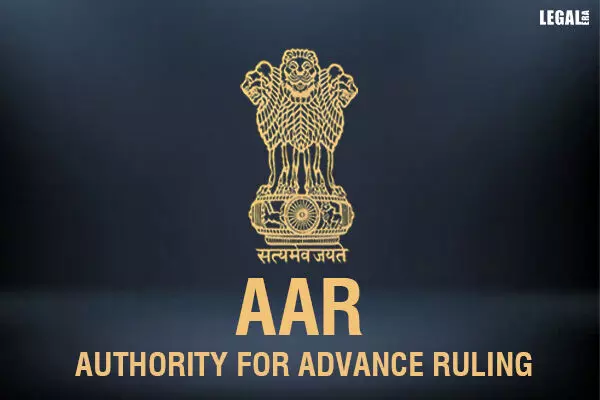- Home
- News
- Articles+
- Aerospace
- AI
- Agriculture
- Alternate Dispute Resolution
- Arbitration & Mediation
- Banking and Finance
- Bankruptcy
- Book Review
- Bribery & Corruption
- Commercial Litigation
- Competition Law
- Conference Reports
- Consumer Products
- Contract
- Corporate Governance
- Corporate Law
- Covid-19
- Cryptocurrency
- Cybersecurity
- Data Protection
- Defence
- Digital Economy
- E-commerce
- Employment Law
- Energy and Natural Resources
- Entertainment and Sports Law
- Environmental Law
- ESG
- FDI
- Food and Beverage
- Gaming
- Health Care
- IBC Diaries
- In Focus
- Inclusion & Diversity
- Insurance Law
- Intellectual Property
- International Law
- IP & Tech Era
- Know the Law
- Labour Laws
- Law & Policy and Regulation
- Litigation
- Litigation Funding
- Manufacturing
- Mergers & Acquisitions
- NFTs
- Privacy
- Private Equity
- Project Finance
- Real Estate
- Risk and Compliance
- Student Corner
- Take On Board
- Tax
- Technology Media and Telecom
- Tributes
- Viewpoint
- Zoom In
- Law Firms
- In-House
- Rankings
- E-Magazine
- Legal Era TV
- Events
- News
- Articles
- Aerospace
- AI
- Agriculture
- Alternate Dispute Resolution
- Arbitration & Mediation
- Banking and Finance
- Bankruptcy
- Book Review
- Bribery & Corruption
- Commercial Litigation
- Competition Law
- Conference Reports
- Consumer Products
- Contract
- Corporate Governance
- Corporate Law
- Covid-19
- Cryptocurrency
- Cybersecurity
- Data Protection
- Defence
- Digital Economy
- E-commerce
- Employment Law
- Energy and Natural Resources
- Entertainment and Sports Law
- Environmental Law
- ESG
- FDI
- Food and Beverage
- Gaming
- Health Care
- IBC Diaries
- In Focus
- Inclusion & Diversity
- Insurance Law
- Intellectual Property
- International Law
- IP & Tech Era
- Know the Law
- Labour Laws
- Law & Policy and Regulation
- Litigation
- Litigation Funding
- Manufacturing
- Mergers & Acquisitions
- NFTs
- Privacy
- Private Equity
- Project Finance
- Real Estate
- Risk and Compliance
- Student Corner
- Take On Board
- Tax
- Technology Media and Telecom
- Tributes
- Viewpoint
- Zoom In
- Law Firms
- In-House
- Rankings
- E-Magazine
- Legal Era TV
- Events
AAR: Free Trade Warehousing Zone Diverse from Warehouse Licensed under Customs Act

AAR: Free Trade Warehousing Zone Diverse from Warehouse Licensed under Customs Act
The operations were established by the Special Economic Zone Act and the Special Economic Zone Rules
The Tamil Nadu bench of the Authority for Advance Rulings (AAR) has ruled that the transfer of title of goods by the applicant to its customers or multiple transfers within the Free Trade Warehousing Zone (FTWZ) would not be considered bonded warehouse transactions covered under Schedule III of the Central Goods and Services Tax (CGST) Act, 2017.
The bench of N. Usha (SGST) and R. Gopalsamy (CGST) held that it was because they fall under the provisions of the Special Economic Zones (SEZ) Act and the Special Economic Zones Rules.
The applicant, Haworth India Private Limited is a wholly-owned subsidiary of the US-based Haworth Inc. and is engaged in manufacturing and selling office furniture under the 'Haworth' brand.
The applicant was considering operating import and re-sale transactions from an FTWZ for operational convenience. It sought an advance ruling on two key aspects:
First, clarification on whether the transfer of title of goods to customers or multiple transfers within the FTWZ was considered as bonded warehouse transactions, falling under Schedule III of the CGST Act, read along with the CGST Amendment Act, 2018.
Second, whether the Integrated Goods and Services Tax (IGST) Circular No. 3/1/2018 of May 2018 was applicable.
The bench noted that a FTWZ was a SEZ, designed primarily for trading, warehousing, and related activities. It held the status of a deemed foreign territory within the geographical boundaries of India concerning tariffs and trade. The legal framework governing FTWZ operations was established by the SEZ Act and the SEZ Rules.
The AAR observed that while the customs officials stationed in the FTWZ oversaw day-to-day activities, including warehousing and clearing of goods for domestic consumption upon payment of applicable customs duties, the provisions of the SEZ Act regulated the administration, licensing, and control of FTWZ. Therefore, FTWZ was distinct from a warehouse licensed under the Customs Act.
The AAR thus stated that the transactions in the application pertained to FTWZ and were subject to the provisions of the SEZ Act, rather than being licensed warehouses under the Customs Act. Resultantly, the transactions within the FTWZ, as outlined in the advance ruling application, would not fall under the purview of Schedule II of the CGST Act, read with the CGST Amendment Act.
The judges explained that Circular No. 03/01/2018 – IGST of May 2018, had been rescinded vide Circular No. 04/01/2019 – IGST of February 2019. It provided that the supply of warehoused goods to any entity prior to their clearance for home consumption would not be classified as either a supply of goods or a supply of service.


